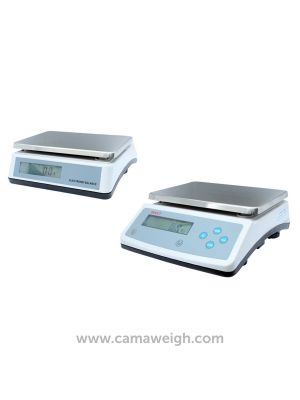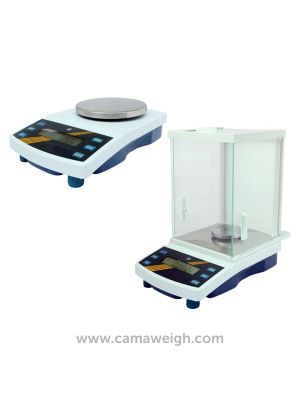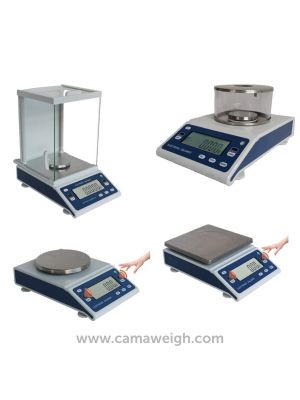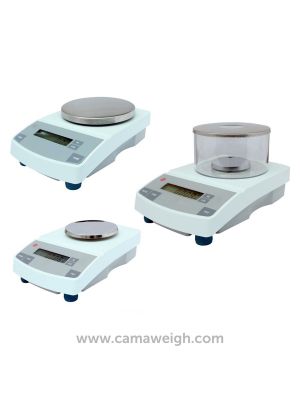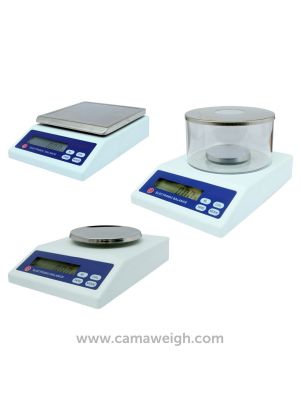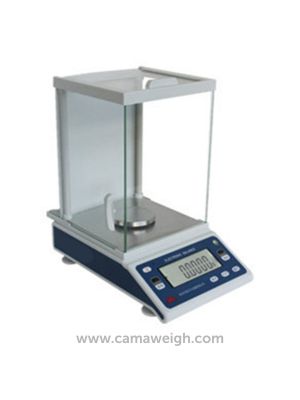Laboratory (Lab) Scales
Camaweigh Laboratory (Lab) Scales
Camaweigh doesn’t offer weighing equipment for very large objects. They also offer weighing equipment designed to weigh very small objects like pebbles and even grains of salt. To get maximum accuracy when weighing these types of material, Camaweigh has created its own line of laboratory scales. Weighing scales are very important in the field of science which is why many laboratories around the world make use of precise laboratory scales which they use is weighing various chemicals and earthly elements. These elements may include gold, copper, bronze, silver, aluminum, and many more. These materials are very light and have different unit weight which means the laboratory scale being used should be accurate up to five decimal places.What are Laboratory Scales?
Precision laboratory scales need to have precision weighing. There are different types of laboratory scales being used in the industry depending on the desire application. Camaweigh’s laboratory scales are known for their high accuracy and display resolution. One type of laboratory scales are analytical balance scales which is used to measure mass at high precision. Analytic balance scales are accurate up to 0.1mg scale division or better. Laboratory scales or scientific balances are available in many sizes and have various weight capacities. Laboratory scales like moisture balances, portable balances, and comparator balances are specialized weighing equipment designed and made for specific applications.
Moisture balances are used in determining the moisture content in most chemicals, food products, wood, sludge, soils, and many pharmaceutical products. Determining the moisture content of a product is very vital due to it can directly affect the quality of the said product. The process of determining moisture content is through the use of heat. Moisture balances initially get the weight of a product or object. When the initial weight is registered, the moisture balance heats up the object until it is completely dry. This is determined when there is no longer any change in the weight of the object. When there is no more change in the weight of the object in the moisture analyzer, this only means that all the moisture is dried up. This will now be the final weight of the object. The weight of moisture is determined to be the difference between the final and initial weight
Applications of Laboratory Scales
Laboratory scales are the kind of weighing equipment which can be found being used in field of academics, genomic, drugs analysis, and pharmaceutical industries. In the field of medicine and pharmaceuticals, accuracy means so much. This is because they are dealing with medicine and other kinds of drugs which are being sold to humans and ingested. As we know, a little overdose of certain drugs can cause serious damage to the human body, even death. This is why pharmaceutical companies only purchase and use the most accurate laboratory scales and weighing equipment.
Laboratory scales are also used in scientific laboratories for scientific research. New drugs and medicines are always being discovered any made to be sold to the public. Many drugs are not made out of one kind of element but are a mix of different powders. The right amount of each element is needed in order to create a safe drug or medicine. Laboratory scales are also used in the field of forensic science because many crimes, especially involving drugs need to determine the element of each drug. To do these, many types of laboratory scales are used, not just one.
Accuracy of Laboratory Scales
All of Camaweigh’s laboratory scales use high quality load cell. Camaweigh makes sure to provide its customer with the best quality laboratory scales in the market which can attend to their accuracy requirements. As of now, Camaweigh only offer laboratory scales with up to 0.01 mg resolution accuracy.

 +254-736-596-840 (Kiswahili, English)
+254-736-596-840 (Kiswahili, English) 
 French
French Spanish
Spanish